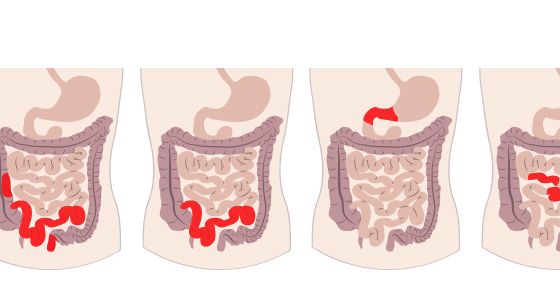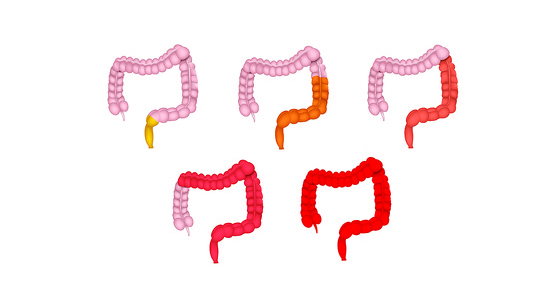The symptoms of inflammatory bowel disease (IBD) vary greatly depending on the type of IBD you have - Crohn’s disease, ulcerative colitis or microscopic colitis - and where it is in your digestive tract.
There are some common symptoms, though not everyone suffers from all of them. These can be primary (directly related to your IBD) or secondary (extraintestinal symptoms which affect parts of your body other than the digestive tract).
Symptoms can come and go and you may have periods where you experience no symptoms at all. This is known as remission. Or, you may experience lots of symptoms all at the same time. This is known as a flare.

Primary symptoms of Crohn’s disease include:
Secondary symptoms of Crohn’s disease include:
Primary symptoms of ulcerative colitis include:



